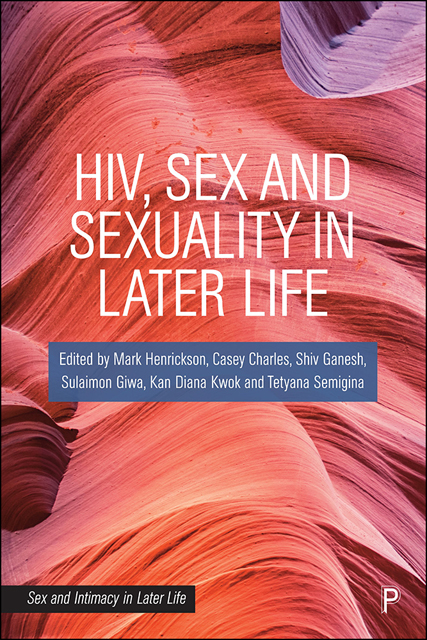9 - Survival of an older Bangladeshi lesbian experiencing intersectional vulnerability
Published online by Cambridge University Press: 16 June 2023
Summary
Introduction
Living as an older gender or sexually diverse person in a society that stigmatises and oppresses gender and sexually diverse communities is challenging. Many gender and sexually diverse people in Bangladesh live by hiding their identities to avoid social stigma and exclusion. The patriarchy and male-dominant values play a significant role in the experiences of gender and sexually diverse populations, especially lesbians. This chapter focuses on the case of an older lesbian, referred to here as Didi. Older people are disadvantaged in many parts of the world due to inadequate financial support and lack of health provisions and social care (Kneale et al, 2021). Didi’s experience of what it is like to live as an older lesbian is used here as a lens to tell us what it is like to live a diverse identity while also needing to get access to health and social care and having social relationships. This chapter also investigates the role of religion in Didi’s life as well as implications for mental health, resilience and support for people living with HIV, based on her lived experiences.
Didi’s experience gives us insight into how stigma can be intersectional for an older woman who also identifies as a lesbian in postcolonial Bangladesh. The stigma older lesbians experience in Bangladesh sits at the intersection of oppression by men, prejudice related to sexual diversity and ageism. While there are challenges in using one person’s experience to explore issues for wider populations, Didi’s experience – due to the nature of her work – is a useful lens. This chapter conveys her multifarious insights about living at the intersection of multiple stigmas and how this impacts her mental health. Didi’s experience in providing support for people living with HIV is discussed in order to reflect how the government regulates health provision for people living with HIV.
Background
This chapter is based on findings from doctoral research that investigated healthcare experiences of gender and sexually diverse communities in Bangladesh. A phenomenological approach was taken to examine the lived experiences of the participant in order to understand what it is like to be a gender or sexually diverse person, an ageing person or a person living with HIV in a society that is culturally conservative.
- Type
- Chapter
- Information
- HIV, Sex and Sexuality in Later Life , pp. 159 - 173Publisher: Bristol University PressPrint publication year: 2022

